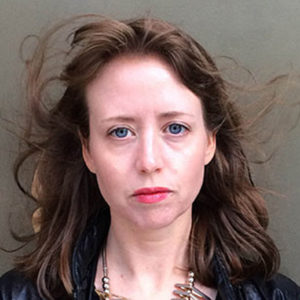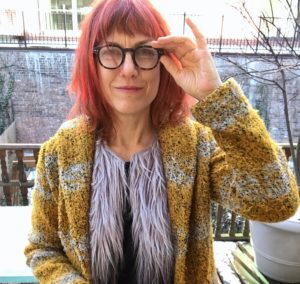 Laura van den Berg  Shelley Jackson |
What: Texas Book Festival 2018 program Ghost Stories: Fiction that Channels the Other Side Subject: Life and death blur in the mysterious new novels by Laura van den Berg (The Third Hotel) and Shelley Jackson (Riddance). A woman’s dead husband is discovered again. Children possess an ability to communicate with those passed. Join them for a discussion of the allure of writing modern new ghost stories and our obsession with the other side. The authors: Laura van den Berg - was raised in Florida. Her first collection of stories, What the World Will Look Like When All the Water Leaves Us, was a Barnes & Noble Discover Great New Writers selection and a finalist for the Frank O’Connor International Short Story Award. Her second collection of stories, The Isle of Youth (FSG Originals, 2013), received the Rosenthal Award for Fiction from the American Academy of Arts and Letters. Her first novel, Find Me (FSG, 2015), was long-listed for the 2016 International Dylan Thomas Prize. She lives in the Boston area. Shelley Jackson - was born in the Philippines, raised in Berkeley, California, and currently lives in Brooklyn, New York, with her husband, her daughter, and a three-legged dog. She received a B.A. in art from Stanford University and an M.F.A. in creative writing from Brown University. She is the author of the short story collection The Melancholy of Anatomy, the novel Half Life, the hypertext novel Patchwork Girl, several children’s books, and “Skin,” a story published in tattoos on the skin of more than 2,000 volunteers. She teaches in the graduate writing program at The New School. |
|
Laura van den Berg said writing has a way to give shape to something overwhelming. Narrative voice has a way of moving into bottomless material. Shelley Jackson said language is founded on the absence of the thing named. She said when writing in a journal, she does it to remember something forever because when she writes it down, it goes away from her memory. When she writes in a journal, she finds a voice she didn’t have in a public venue. She also said that speaking is writing out loud. “I feel I become a channel. I felt like a remix artist (see reporters note below *) taking spirits and putting them together. We’re already channeling the dead when we write. Speech is a haunting.” van den Berg said we are made up of our pasts and our pasts continue to shape us. She said our haunted narrative gives voice to something that can’t be erased. Such as that childhood sense of something that went wrong. In her book, The Third Hotel, her main character, a daughter of a hotel owner, is a conduit between the living and ghosts. When you go into a hotel room, it’s been cleaned, but if you search the room you can find something like a hand print on a window that’s been left behind. The first time van den Berg saw an action movie with a female as a hero, it was a horror film. For the main character, the goal was to be the last one standing. To do that she had to adopt toxic male values. But to become the monster to beat the monster has its own set of problems. She investigates the undercurrents of the current tropes hoping to find something new, something empowering. But usually, she just finds the same old toxicity. Jackson said we channel the past experiences of others. We think we don’t come up with something original, but no one does. “We’re just channeling others.” * It is the reporter's opinion that the term “remix artist” is a oxymoron. |